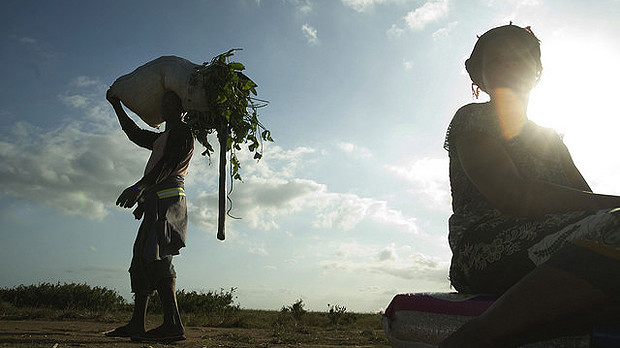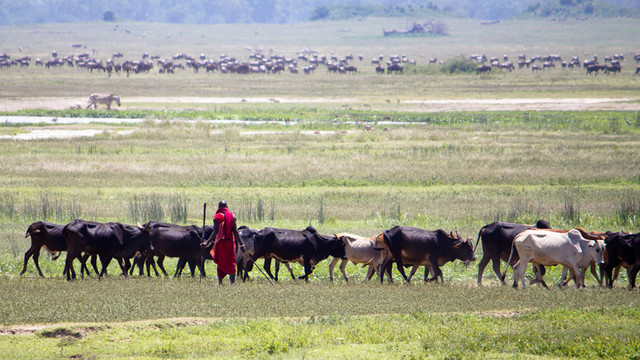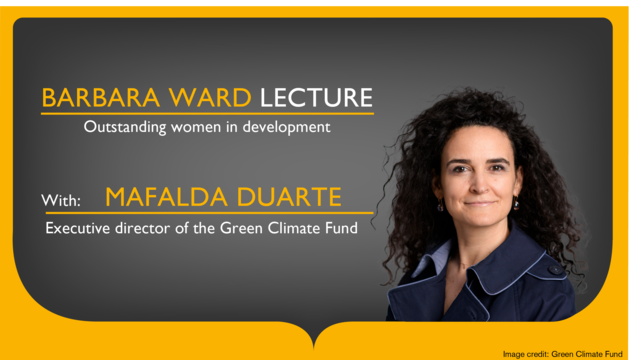Climate finance for sustainable development: regional forum
IIED is co-hosting a regional forum with UNDP in Jakarta, Indonesia, to share learning and experience on making sure climate finance works for sustainable development.


A farmer in southern Mozambique carries greens back to his family from a project that has been backed by the Climate Investment Fund, which is working with the African Development Bank on a pilot program for climate resilience (Photo: CIF Action, Creative Commons, via Flickr)
2015 is a momentous year for international development. Three key global summits – on finance, on sustainable development and on climate – will define the ambition and direction of this agenda for the coming decades. Against this backdrop, IIED is co-hosting an Asia-Pacific regional forum with UNDP to look at climate finance and sustainable development.
The Third International Conference on Financing for Development (FFD), which took place in Addis Ababa in July, was a unique forum that addressed how development finance should be structured to meet the new Sustainable Sevelopment Goals (SDGs), due to be agreed at the UN General Assembly in September. The UN climate talks in Paris in December (COP 21) similarly will be a milestone event for establishing a new international agreement for climate change.
Organised with the United Nations Development Programme (UNDP), the two-and-a-half day regional forum will take place from 1-3 September 2015 in Jakarta, Indonesia. The event draws on the outcome from FFD conference in Addis and will develop key messages to take forward in the context of SDGs in New York and the COP21 in Paris.
Climate finance to benefit poor
IIED and the International Centre for Climate Change and Development (ICCCAD)-hosted sessions will focus on the specific elements of climate finance that can benefit the poor, encourage inclusive investments and help achieve the ambition of the SDGs.
Some of our case studies will illustrate how using appropriate sources of climate finance, suitable financial intermediaries, financial instruments, financial planning systems and aligning incentives with pro-poor choices, can help catalyse inclusive investment.
The agenda will focus on three main areas that speak to the aspirations and route of SDGs, the FFD and the upcoming COP:
- How can public-private partnerships help catalyse and deliver finance for inclusive low carbon resilience development?
This session will bring together case studies of how national development banks such as the Development Bank of Ethiopia and Bangladesh Bank and special purpose agencies such CREF and Infrastructure Development Company Limited (IDCOL) are unlocking public-private flows of finance for inclusive investment. It will also explore incentives that underpin innovations and investments in low carbon-resilient development (LCRD)
- How can the poor benefit by advancing climate finance at the local level?
The objective of this session will be to review partnerships between different local stakeholders in catalysing pro-poor decisions for using climate finance. Led by ICCCAD Bangladesh, the session will invite community actors to share examples of good practice that translate sustainable development policies into action. These include, for example, Kenya's County Adaptation Fund, the role of local governments in Nepal, and the role of NGOs in Bangladesh, and illustrate how innovative mechanisms can be designed to deliver bottom up approaches to climate resilience
- To what extent is climate resilient development achieving development impacts?
This session will share the lessons from work on establishing monitoring and evaluation systems for development and climate finance and look at how these systems can support effective national and international monitoring systems for the SDGs. The session will review some of the different country experiences from the Tracking Adaptation and Measuring Development (TAMD) initiative and focus on cross-cutting lessons on connecting national frameworks to international goals, and how to make these frameworks meaningful in national contexts.
Shared learning
The workshop will bring together hundreds of participants, including officials from finance, planning, social welfare ministries as well as the private sector and civil society organisations to share learning from country experiences across Asia and Africa and enhance a better understanding of how to mobilise, disburse and monitor climate finance to achieve sustainable development outcomes.
In a year when the global community aims to develop an ambitious route for the most poor, these South-South deliberations will seek to share innovative ways to provide solutions.
Neha Rai (neha.rai@iied.org) is senior researcher in IIED's Climate Change Group.


